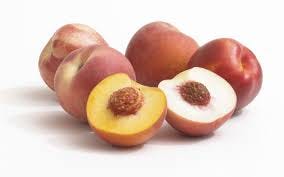Peaches (Prunus persica) are not only delicious but also packed with essential nutrients that offer numerous health benefits. Rich in vitamins, minerals, antioxidants, and dietary fiber, peaches contribute to improved digestion, heart health, skin vitality, and even cancer prevention. This article explores the science-backed health benefits of peaches, supported by research studies.
1. Rich in Essential Nutrients
Peaches are low in calories (about 59 calories per medium-sized peach) but high in vital nutrients, including:
Vitamin C – Supports immune function and skin health. Nutrients 2017
Vitamin A – Promotes eye health and cellular growth. American Journal of Clinical Nutrition 2011
Potassium – Helps regulate blood pressure. Advances in Nutrition 2013
Fiber – Aids digestion and gut health. Nutrients 2013
Antioxidants (phenolic compounds, carotenoids) – Combat oxidative stress. Journal of Agricultural and Food Chemistry 2014
2. Supports Digestive Health
Peaches contain both soluble and insoluble fiber, which promote healthy digestion. Soluble fiber feeds beneficial gut bacteria, while insoluble fiber prevents constipation. Alimentary Pharmacology & Therapeutics 2006
A study in Food Chemistry 2011 found that peach polyphenols enhance gut microbiota diversity, improving overall digestive health.
3. Boosts Heart Health
The potassium in peaches helps regulate blood pressure by counteracting the effects of sodium. Journal of Clinical Hypertension 2011
Additionally, peach antioxidants reduce LDL ("bad") cholesterol and inflammation, lowering the risk of cardiovascular diseases. Nutrition Reviews 2010
A study in the Journal of Nutritional Biochemistry 2015 found that peach extracts reduce arterial plaque formation in animal models.
4. Enhances Skin Health
Peaches are rich in vitamin C, which stimulates collagen production, reducing wrinkles and improving skin elasticity. Nutrients 2017
The antioxidants in peaches also protect against UV damage, as shown in a Journal of Cosmetic Dermatology 2013 study.
5. May Help Prevent Cancer
Peaches contain bioactive compounds like chlorogenic acid and quercetin, which have anti-cancer properties. Research in Molecular Nutrition & Food Research 2009 found that peach polyphenols inhibit breast cancer cell growth.
Another study in Nutrition and Cancer 2000 linked peach consumption to reduced colon cancer risk.
6. Supports Immune Function
The high vitamin C content in peaches strengthens the immune system by enhancing white blood cell function. Nutrients 2017
A study in Nutrients 2017 confirmed that vitamin C reduces the severity and duration of infections.
7. Aids in Weight Management
Peaches are low in calories and high in fiber, promoting satiety and reducing overeating. Nutrition Reviews 2001
Research in Appetite 2011 found that fiber-rich fruits like peaches help control appetite and support weight loss.
8. Reduces Inflammation and Oxidative Stress
The polyphenols in peaches combat inflammation, which is linked to chronic diseases like diabetes and arthritis. Clinical Nutrition 2009
A study in Food & Function 2016 found that peach extracts reduce inflammatory markers in obese rats.
9. Improves Eye Health
Peaches contain lutein and zeaxanthin, carotenoids that protect against age-related macular degeneration. Ophthalmology 2012
Research in Ophthalmology suggests that these compounds lower the risk of cataracts. Clinical Interventions in Aging 2015
10. May Help Regulate Blood Sugar
Despite their sweetness, peaches have a low glycemic index (GI), making them suitable for diabetics. American Journal of Clinical Nutrition 1981
A study in Journal of Medicinal Food 2006 found that peach extracts improve insulin sensitivity.
Conclusion
Peaches are a powerhouse of nutrients and antioxidants, offering benefits for digestion, heart health, skin, immunity, and chronic disease prevention. Including peaches in your diet can enhance overall well-being, backed by scientific evidence.









